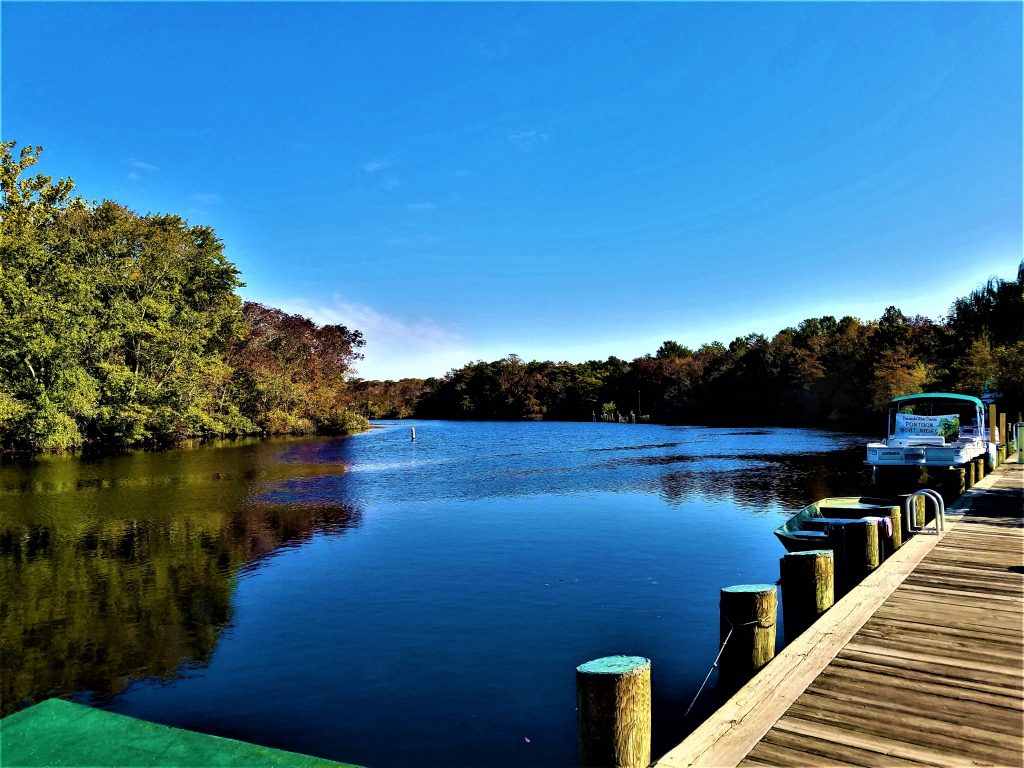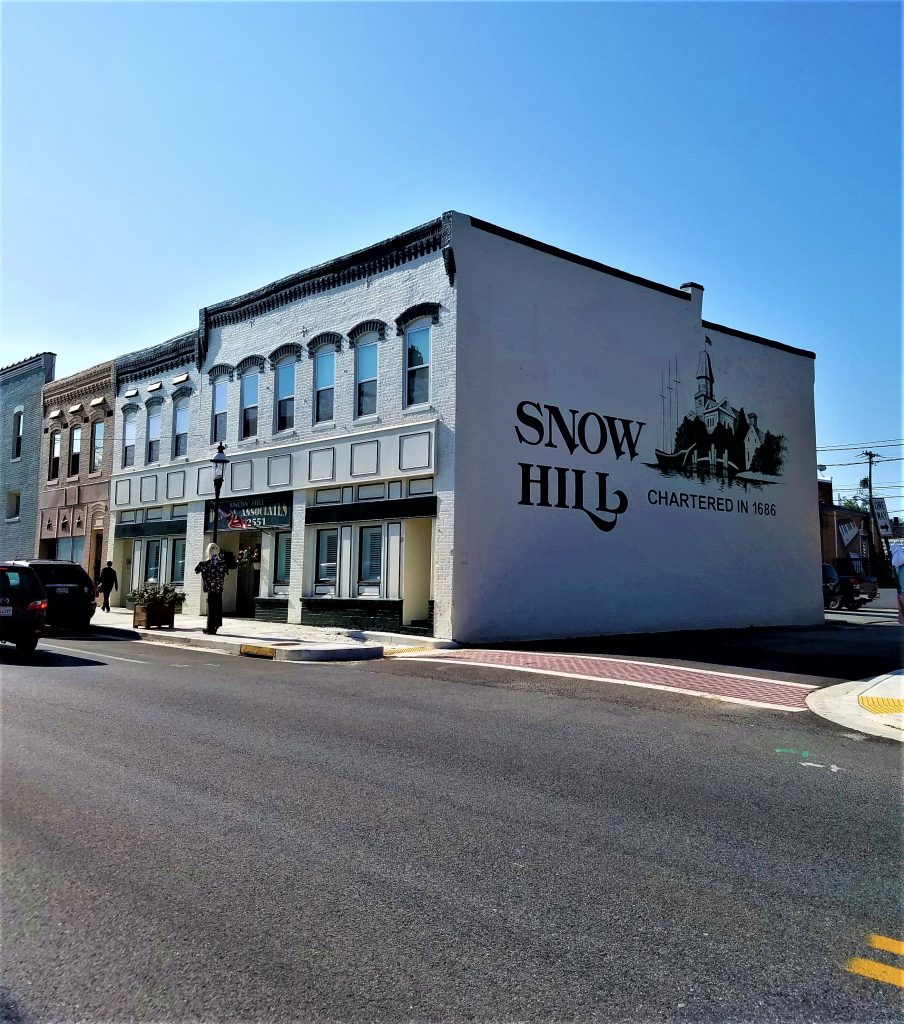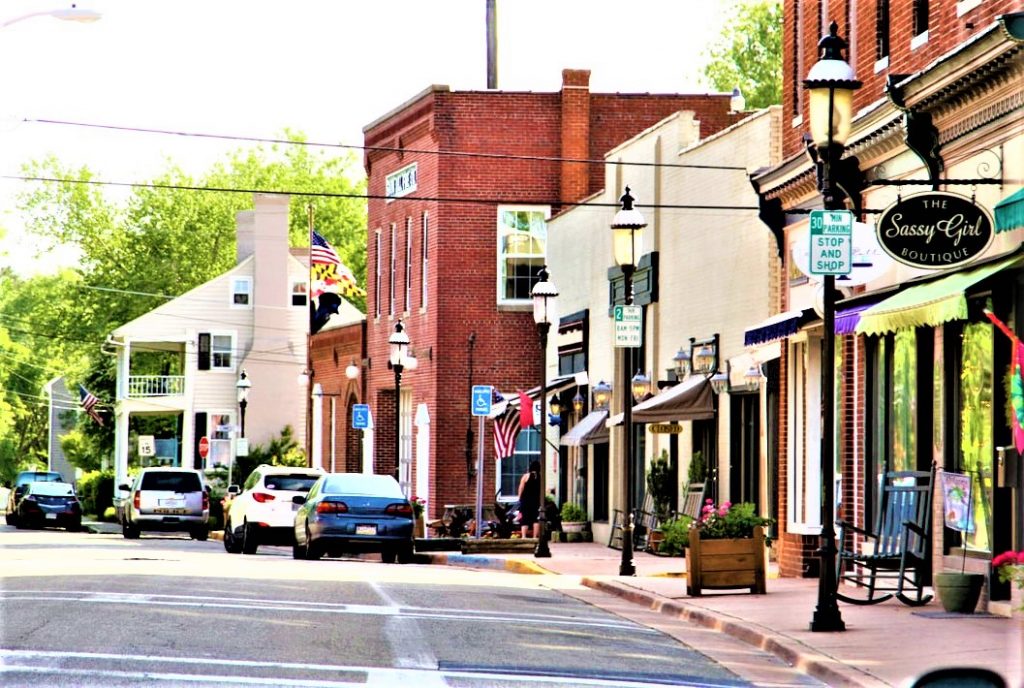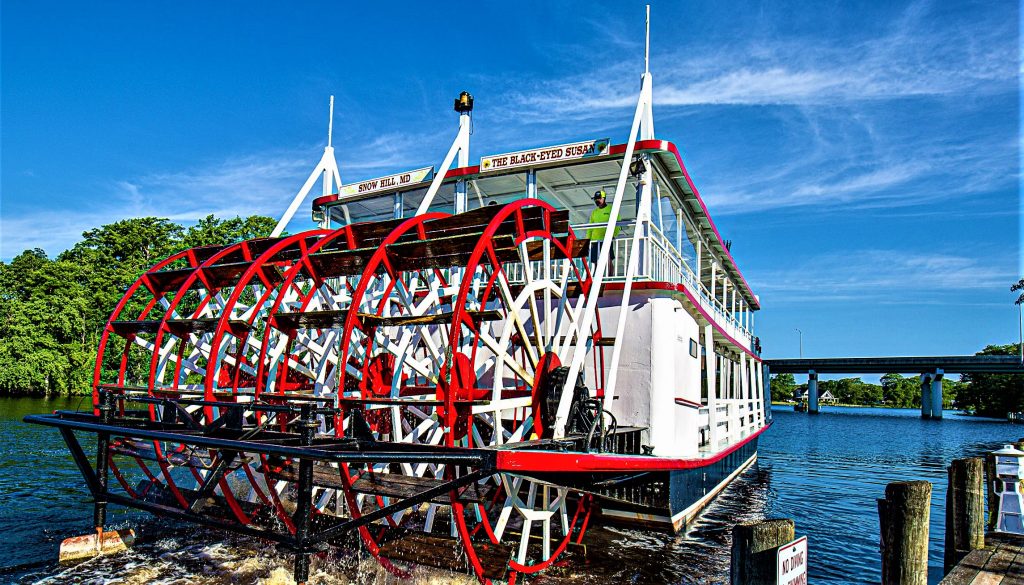
The Town of Snow Hill was founded in 1686 by English colonists. Established along the Pocomoke River, the town was made a royal port by William and Mary of England; imported goods came through Snow Hill to be taxed. Goods such as cypress lumber and tobacco were exported. Snow Hill was also home to a thriving shipbuilding industry.
In 1742, the Houses of Assembly approved “an act to divide Somerset County and to create a new county on the seaboard side by the name of Worcester.” Snow Hill was named the new county seat.
As Snow Hill gained economic importance, the Pocomoke River became more heavily traveled. Large ships called on the port town, offering overnight service to Norfolk and Baltimore. With the increase in traffic, Snow Hill grew: hotels and boarding houses sprang up, and the Richardson, Smith & Moore Lumber Company dominated the waterfront as the county’s largest employer. Merchants, liverymen, coopers, smiths, and wagon makers all made their livings from the river traffic.
After the Civil War, the railroad found its way along Maryland’s Eastern Shore, providing fast, inexpensive transportation. As land transportation expanded, the Pocomoke River was used less. Snow Hill went into decline. As the shipyards closed, workers turned to the agricultural industry, cultivating corn and soybeans, and raising livestock. Agriculture remains an important industry as Snow Hill continues to evolve.




